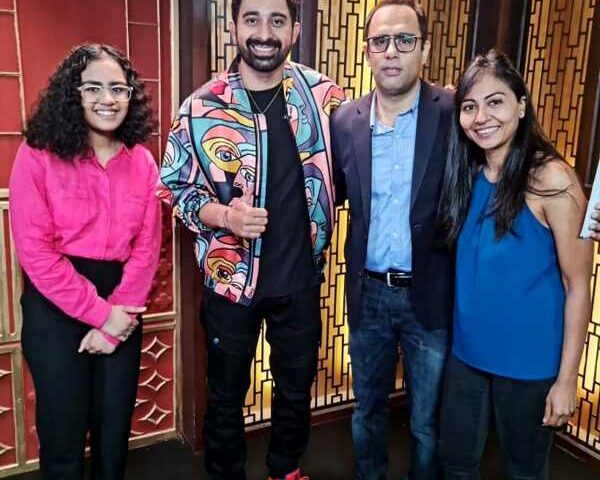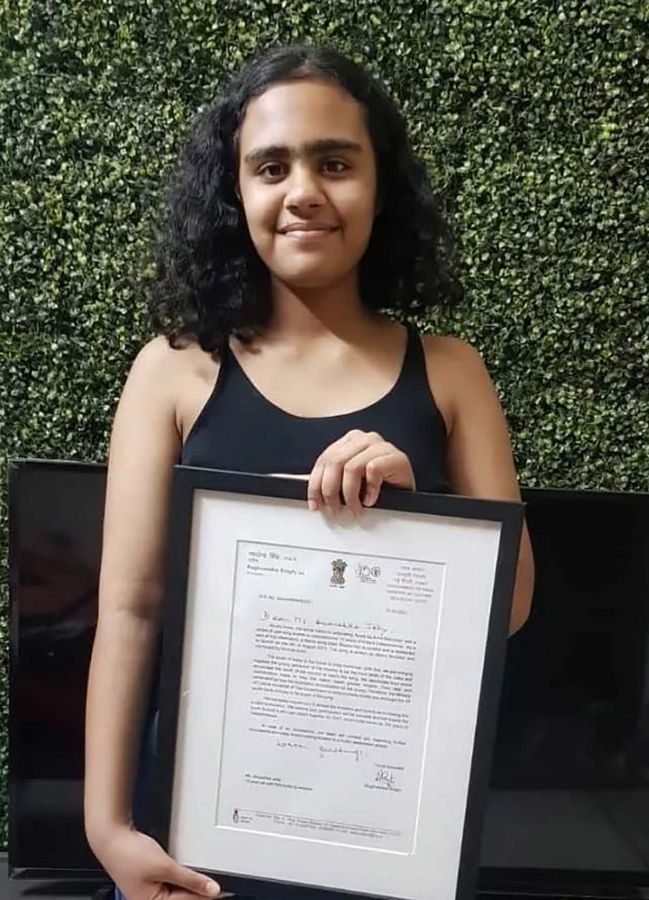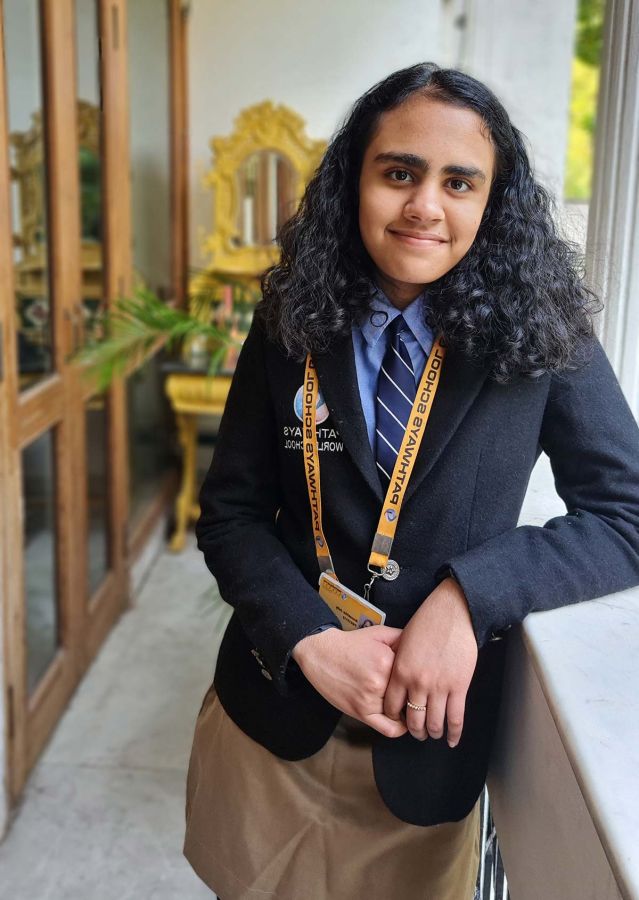‘Anyone can be bullied. No one is truly immune.’
Anoushka is only 13. But the Class 8 student of the Pathways School, Gurugram, has already received Rs 5 lakh (Rs 500,000) funding for her (yet to be launched) anti-bullying app Kavach on the reality show Shark Tank India which airs on Sony and SonyLiv.
More than 60,000 people from all over India had registered for the event of which 198 applicants were selected to present their funding pitch in the first season of the show aired in India between December 20, 2021 and February 4, 2022.
Anoushka is the youngest entrepreneur (so far from season 1) to receive funding from sharks Anupam Mittal, founder, and CEO of People Group (Shaadi.com) and Aman Gupta, co-founder of boAt for her idea.
“I was 9 when I was bullied by some of my closest friends for almost a year. And it really broke me,” the teen tells Divya Nair/Rediff.com
Later, when she witnessed a 6 year old being bullied during a school function, it inspired her to start a support campaign and stand up for victims like her.
In 2018, after discussing with her parents — her father is an entrepreneur and mother is a chartered accountant — Anoushka started an Anti-Bullying Squad so she can help students like her report incidents of bullying and harassment anonymously and further alert the relevant authorities to take action and find solutions.
Three years later, Anoushka came up with the idea to build an anti-bullying app with the help of schools, NGOs and academic institutes along with counsellors and experts on board.
Aptly titled Kavach, meaning safety shield, the app is valued at Rs 50 lakh and was at the development stage when it was presented at the show.
“There were four rounds of selection, including two online rounds and one in-person. In 2021, we had to submit our pitch and details with the team. My father and I used to watch Shark Tank America since I was in Class 4, so I was aware of the show. I always wanted to be an entrepreneur and the opportunity came in at the right time.”
The funding has helped Anoushka develop the app which has already interested more than 1,000 schools (mostly in the Delhi-NCR region) to sign up for it.
Sharing details about how Kavach will function, she says, “When a student anonymously reports an incident of bullying, s/he can share details where the crime was committed. The concerned authorities will receive an alert so they can investigate the incident. If it has happened in school premises, maybe they can monitor the area, assign a staff or install a CCTV to prevent future crimes.”
Bullying is different from occasional mocking or simply teasing someone, she insists.
“For an act to qualify as bullying, it has to meet the following requirements — 1. It has to be done with an intention to hurt someone; 2. It has to cause pain; 3. It has to be repeated; 4. There must be a power imbalance — the person committing the act must be in a higher state of power or authority,” explains Anouska.
After researching the issue and interacting with her peers and experts, Anoushka realised some shocking statistics.
“Indian kids are the most cyber-bullied (in the world). But most of the incidents go unreported. In fact, people don’t even know where and how to report an incident of bullying.”
“In India, we are generally rude to each other, so we tend to normalise the culture of violence in society where bullying is not considered such a big deal,” she says.
Surprisingly, even parents tend to ignore initial warnings or cases of complaints from their wards.
“Parents usually brush it off and don’t take it seriously until it is too late,” Anoushka points out while sharing an example of a 10 year old who was bullied and physically abused in the school bus.
“I spoke to the boy who confided in me and reached out to the parents.”
“Usually when we do sessions in schools and NGOs, there is a counsellor with me. But I have noticed that some children prefer talking to me. So I share the contact details and tell them ‘we are there to help’.”
Anoushka disagrees with the popular belief that only the weak are bullied. “Anyone can be bullied. No one is truly immune,” she insists.
“Bullies are insecure. People who suffer from low self esteem, people who come from troubled families and social backgrounds are more prone to become bullies when they grow up.”
Every time you say NO and stand up to a bully, you become an anti-bullying ambassador. And with the right intervention and counselling, Anoushka believes we can identify potential bullies and maybe even help them become better human beings.
However, the pandemic, Anoushka says, has worsened the situation across India.
“Before the pandemic, I used to visit schools and interact with students and talk to them about how to fight and report bullying. In the pandemic, we did more of Instagram live through schools and NGOs,” she says.
“I’ve realised that children are bullied online as well, but they don’t know how to seek help. In fact, the incidents of cyberbullying, phishing have increased in India during the pandemic. And children are easy victims of cyber crimes,” she points out.
The app — which will soon be available for free on Google Playstore — has already reached out to over 2,000 students from more than 100 schools and universities.
A common confession among bullies is that s/he did not have a choice. Anoushka feels “there is always a choice. You can choose to be a bully or you could be a nice person.”
Source: Read Full Article



